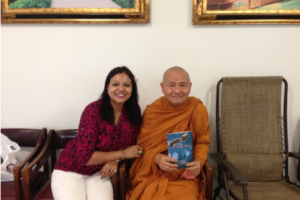It took five weeks and a Supreme Court decision to elect a president in 2000 — and this year may hold similar suspense. With some states yet to count all votes, Donald Trump prematurely declared himself victorious.
With votes still being counted in crucial battleground states, incumbent President Donald Trump is already trying to set the narrative. Speaking to supporters at the White House early Wednesday morning, he prematurely said: “We did win this election.”
Trump also told supporters during his short speech on this long election night that his camp would take his assertion to the top court. “We’ll be going to the US Supreme Court.”
It is unknown what issue exactly the president and his team plan to take to the court, though in his next breath Trump said: “We want all voting to stop.”
To be clear, all votes had in fact been cast, which includes postmarked mail-in ballots, at the time Trump delivered his speech — and observers suggest he likely meant stop the counting of absentee and mail-in ballots, which could potentially catapult his challenger Joe Biden past him in the important battleground swing states of Michigan and Pennsylvania.
Final results are always a long time coming
It is common that final election results are not known on election night, as Ellen Weintraub of the US Federal Elections Commission (FEC) told broadcaster CNN: “We have never had official results on election day. They come weeks later.”
The commissioner said the most important thing is that all votes get counted.
DW’s fact-checkers say there is plenty of time to count all of the legally cast votes: 21 states accept ballots that arrive after election day as long as they are postmarked by, in this case, November 3, and received by election authorities by a specific date.
Among those states are Pennsylvania, Nevada and North Carolina — though final deadlines for acceptance vary from state to state.
Lawyers assume battle positions
That brings to mind the 2000 presidential election, when the swing state of Florida became the focus of national attention. Initial tabulations had Democratic candidate Vice-President Al Gore trailing Republican George W. Bush by only 1,800 votes. In allocating all-important electoral college votes, Florida, like most states, employs the “unit rule,” which awards all of a state’s electors to the candidate who wins the majority of the state’s popular vote. With Bush and Gore virtually tied, election officials in Florida had held the keys to the White House.
Gore, who had in fact already called Bush to congratulate him on his win, called for a recount in Florida — something the law allows in cases in which the vote is extremely close. Suddenly, the Republican lead shrank to less than 1,000 votes. As the count across the state went on, Gore’s hopes of winning the presidency swelled. Armies of lawyers were brought in on both sides — lodging legal complaints that made their way from the Florida Supreme Court all the way to the highest court in the land: the US Supreme Court.
The good loser — Al Gore
On December 12, 2000, five weeks after Election Day, Supreme Court justices ruled that no unified standards had been adhered to during hand recounts around the state and that there would be no further recounting. And with that, the court made George W. Bush president of the United States.
So is that a scenario that could play out once again this year? “Yes, there are certainly parallels,” says Peter Wittig, who served as Germany’s ambassador to the US from 2014 to 2018. “We know that there are currently more than 4,000 legal challenges ongoing at various localities. These will all land in a number of different courts. So, we should be prepared for a legal battle.”
But, Wittig tells DW, there is one major difference between now and then, “We all remember that at some point Al Gore threw in the towel and left the race as a good loser.”
Gore, he says, gave priority to the greater good, the stability of US democracy, rather than continue the fight. “I’m not so certain the legal fight will end with the sense of sportsmanship that it did in 2000.”
Stress test for US democracy
Right now, votes are still being counted and the specifics of the looming legal battle remain unclear as yet — so long as neither candidate concedes the race. Should the legal battle in fact make its way to the Supreme Court as it did in 2000, Trump could at least rest easier knowing there is a 6-3 conservative majority on the bench. Only last week, he stood beside his nominee Amy Coney Barrett as she was sworn in as the top court’s newest justice.
But would the Supreme Court of the United States hand down a political decision? That, too, remains unclear. If so, it would be a step that would undermine US democracy and the centuries-old institutions of its government. “We will be in a phase of great uncertainty over the next hours or maybe even days,” says former German Ambassador Peter Wittig. “The question is whether the political process will be allowed to run its normal and correct course, or if legal maneuvering will disrupt the vote-counting process.”
Source: DW





















